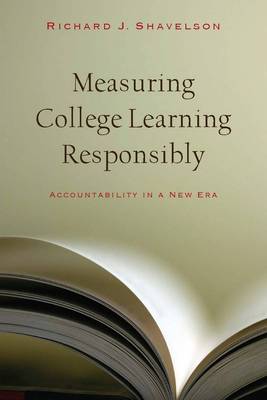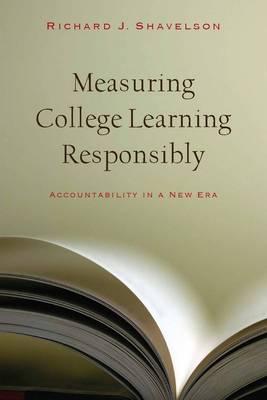
- Afhalen na 1 uur in een winkel met voorraad
- Gratis thuislevering in België vanaf € 30
- Ruim aanbod met 7 miljoen producten
- Afhalen na 1 uur in een winkel met voorraad
- Gratis thuislevering in België vanaf € 30
- Ruim aanbod met 7 miljoen producten
Zoeken
Measuring College Learning Responsibly
Accountability in a New Era
Richard J Shavelson
Hardcover | Engels
€ 177,45
+ 354 punten
Uitvoering
Omschrijving
Accrediting boards, the federal government, and state legislatures are now requiring a greater level of accountability from higher education. However, current accountability practices, including accreditation, No Child Left Behind, and performance reporting are inadequate to the task. If wielded indiscriminately, accountability can actually do more harm than good. This innovative work looks broadly at how accountability is being considered by campuses, accrediting boards, higher education organizations, and governments in the US and abroad. It explores how new demands for accountability and new technologies are changing the way student learning is assessed. The author, one of the most respected assessment researchers in the nation, provides a framework for assessing student learning and discusses historical and contemporary debates in the field. He details new directions in assessment, such as the Collegiate Learning Assessment he helped develop, analyzes exemplary campus assessment programs, and proposes considerations necessary for designing successful accountability systems.
Specificaties
Betrokkenen
- Auteur(s):
- Uitgeverij:
Inhoud
- Aantal bladzijden:
- 256
- Taal:
- Engels
Eigenschappen
- Productcode (EAN):
- 9780804761208
- Verschijningsdatum:
- 17/12/2009
- Uitvoering:
- Hardcover
- Formaat:
- Ongenaaid / garenloos gebonden
- Afmetingen:
- 155 mm x 229 mm
- Gewicht:
- 453 g

Alleen bij Standaard Boekhandel
+ 354 punten op je klantenkaart van Standaard Boekhandel
Beoordelingen
We publiceren alleen reviews die voldoen aan de voorwaarden voor reviews. Bekijk onze voorwaarden voor reviews.











